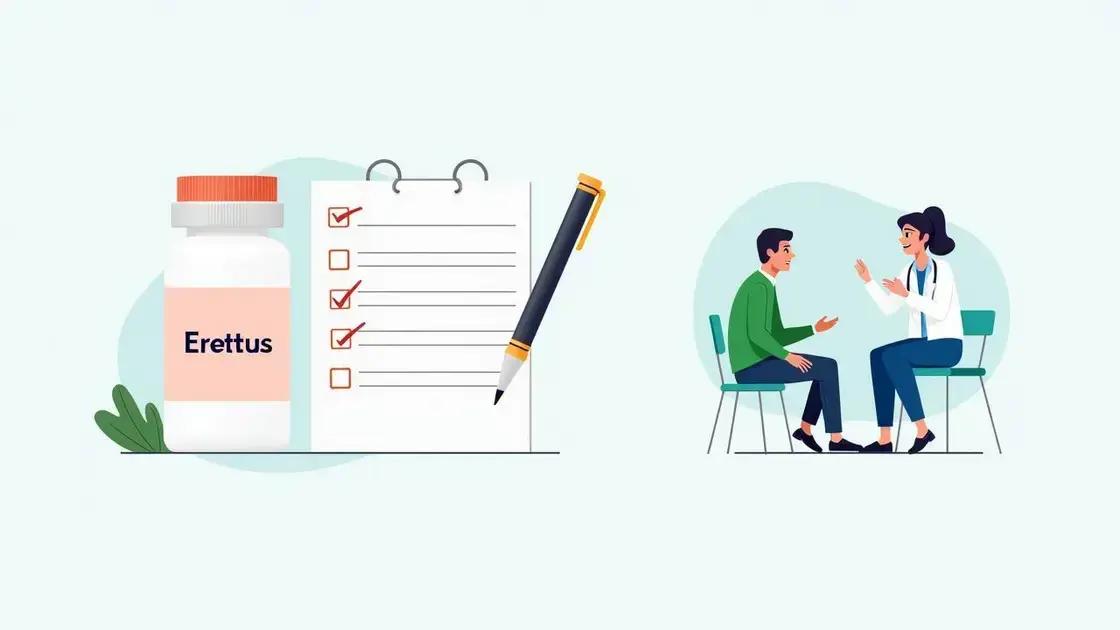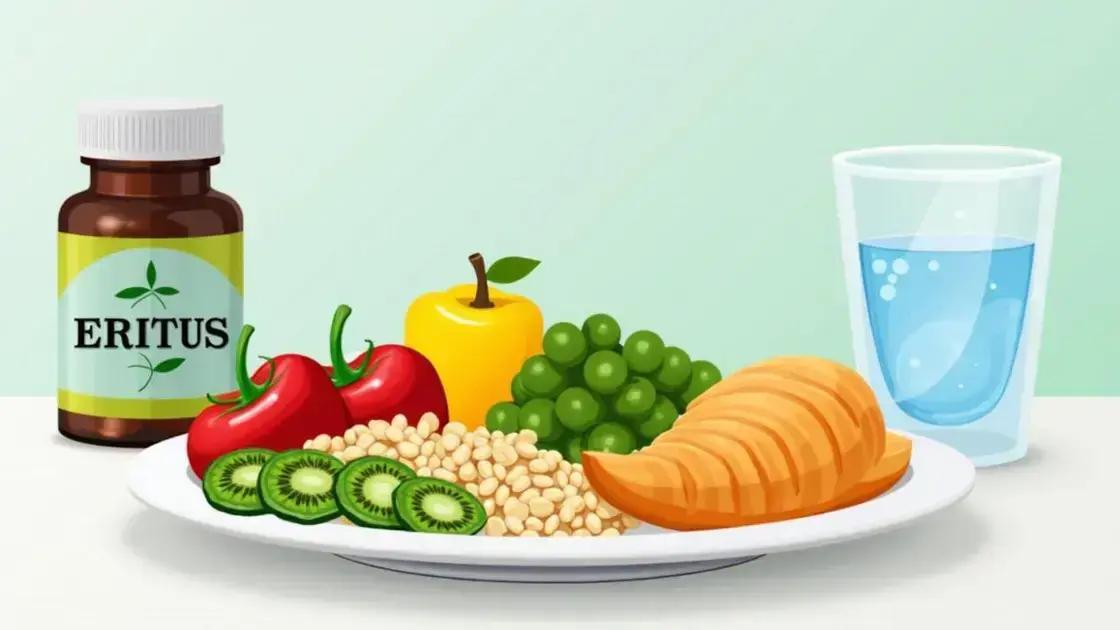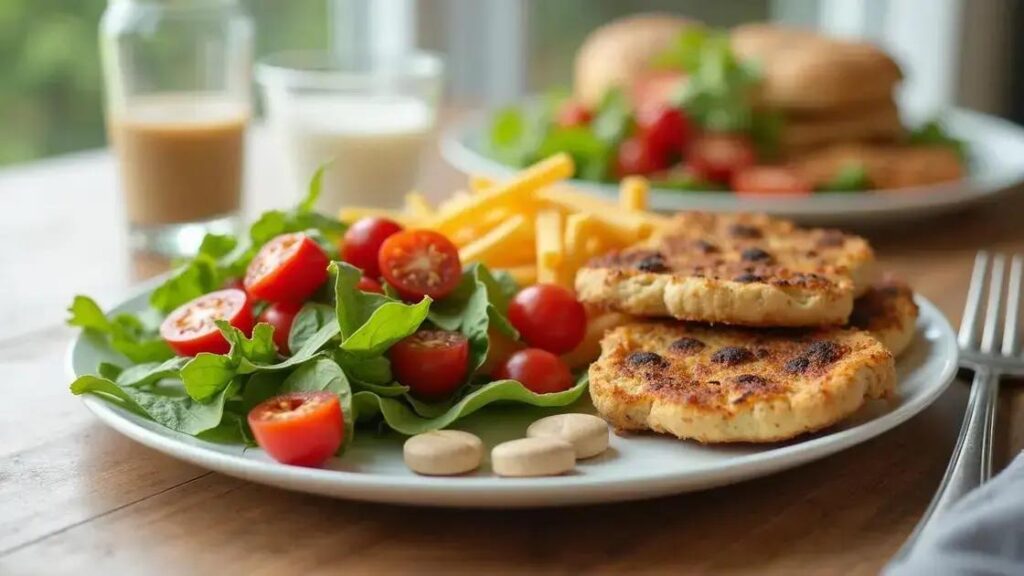If you’re wondering whether you need a special diet while using Erettus, the answer is yes, a balanced diet that includes fruits, vegetables, lean proteins, and whole grains can enhance the medication’s effectiveness and support overall health. Consulting professionals like a nutritionist can provide tailored dietary guidance, helping you manage side effects and optimize your treatment.
If you’re asking, “Do I need a special diet while using Erettus?” you’re not alone. Many individuals find themselves wondering about the changes they might need to make to their eating habits when starting any new medication. Erettus, a medication known for its specific health benefits, can elicit various effects on the body. It’s essential to understand how your diet can impact your journey to better health. In this blog post, we’ll cover the necessary dietary considerations to keep in mind while using Erettus. Let’s dive into the key aspects to help you make informed choices.
Understanding Erettus and Its Effects

Erettus is a medication that can affect your body in various ways. Understanding its effects is crucial for anyone considering its use. Erettus is commonly prescribed for issues related to health that require careful management. Its primary benefits include improving certain functions and alleviating specific symptoms.
How Erettus Works
Erettus works by targeting specific pathways in the body. This can lead to improvements in your overall health status. It’s important to recognize that the interaction with other medications and foods can influence its effectiveness. Always consult with a healthcare professional for personalized advice.
Common Side Effects
While taking Erettus, some people may experience side effects. These can range from mild discomfort to more serious reactions. It’s vital to monitor how you feel and report any concerns to your doctor. Common side effects include nausea, headaches, and changes in appetite. Understanding these effects will guide you in managing your diet and overall health.
Importance of Reporting Your Experience
Sharing your experiences with a healthcare provider can enhance your treatment. They can adjust your dosage or suggest dietary changes to maximize the benefits of Erettus. Maintain an open dialogue to ensure the best outcome during your medication journey.
Importance of Diet While Using Erettus

The importance of diet while using Erettus cannot be underestimated. Diet plays a crucial role in how medications work in our bodies. A well-balanced diet can help maximize the effects of Erettus and minimize unwanted side effects.
How Diet Influences Medication
Certain foods can alter the way your body absorbs Erettus. For example, high-fat meals may affect its effectiveness. Eating a nutritious diet supports your overall health and helps your body respond better to the medication.
Adjusting Your Diet for Better Results
When taking Erettus, it’s wise to include more fruits, vegetables, and whole grains in your meals. These foods can provide essential nutrients that support your body’s healing process. Additionally, staying hydrated by drinking plenty of water is also key.
Managing Side Effects Through Diet
Some individuals might experience gastrointestinal side effects while on Erettus. In these cases, incorporating easy-to-digest foods, such as bananas and rice, can help. Keeping track of how different foods affect your body can help you make better choices.
Following a balanced diet while using Erettus not only enhances the medication’s effectiveness but also boosts your well-being. It’s crucial to stay mindful of your eating habits during this time.
Special Foods to Include in Your Diet

When considering a diet while using Erettus, adding special foods can greatly benefit your health. These foods can support your body’s response to the medication and improve overall well-being.
Fruits and Vegetables
Incorporating a variety of fruits and vegetables into your meals is essential. They provide vitamins, minerals, and antioxidants that help your body function properly. Spices like ginger and turmeric can also be beneficial due to their anti-inflammatory properties.
Lean Proteins
Eating lean proteins such as chicken, fish, and legumes is important. These help build and repair tissues, which is crucial when taking any medication. They also keep you full and support muscle health.
Whole Grains
Foods like brown rice, quinoa, and whole grain bread should be included in your diet. Whole grains provide energy and help you maintain stable blood sugar levels, which is beneficial while on Erettus.
Nuts and Seeds
Nuts and seeds are excellent additions to your diet. They offer healthy fats, protein, and fiber. Options like almonds, chia seeds, and flaxseeds can enhance your meals and snacks.
Including these special foods can help create a balanced diet that supports your health while using Erettus. Paying attention to what you eat is key to getting the most out of your treatment.
Consulting Professionals About Your Diet

Consulting professionals about your diet while using Erettus is a crucial step for optimal health. Registered dietitians and healthcare providers can offer tailored advice based on your unique needs and medical history.
Why Seek Professional Guidance?
Healthcare professionals have the expertise to evaluate your dietary habits and recommend changes that align with your medication. They can help identify foods that may interact negatively with Erettus, ensuring you get the best results.
Creating a Personalized Diet Plan
A dietitian can assist in creating a personalized meal plan that fits your lifestyle. This plan can incorporate special foods that support your health, helping you meet nutritional goals while taking Erettus.
Monitoring Your Progress
Regular check-ins with professionals can help track your progress. They can assess how your body is responding to both the medication and dietary changes. This aids in making necessary adjustments for continued success.
Addressing Concerns and Questions
Never hesitate to ask questions or voice concerns during consultations. Professionals can provide clarity on many aspects of your diet and health while using Erettus. This open communication is vital for your well-being.
Working with professionals ensures that your diet complements your treatment. It’s an excellent way to enhance both your health and the effectiveness of Erettus.
In Conclusion: Navigating Your Diet While Using Erettus
Diet plays a vital role in your health journey while using Erettus. Understanding how Erettus affects your body emphasizes the importance of nutrition in maximizing the medication’s benefits.
Incorporating special foods can help enhance your overall well-being and support the medication’s effectiveness. Consulting with professionals about your diet adds a personalized touch, ensuring you receive expert guidance tailored to your unique needs.
By making informed dietary choices, you can improve your health outcomes and enjoy a smoother experience while taking Erettus.
FAQ – Frequently Asked Questions About Diet While Using Erettus
Do I need a special diet while using Erettus?
While not mandatory, adopting a special diet can help enhance the effectiveness of Erettus and support your overall health.
What foods should I include in my diet while using Erettus?
Including fruits, vegetables, lean proteins, whole grains, nuts, and seeds can provide essential nutrients and help optimize your treatment.
Can certain foods interact with Erettus?
Yes, some foods can affect how Erettus is absorbed in your body. Consulting with a healthcare professional is advisable to avoid negative interactions.
How can I manage side effects through diet?
Incorporating easy-to-digest foods and staying hydrated can help manage gastrointestinal side effects that may arise while taking Erettus.
Why is consulting a nutritionist important?
A nutritionist can provide tailored guidance, creating a personalized meal plan that aligns with your health needs and medication requirements.
How often should I consult a professional about my diet?
Regular consultations as needed, especially when starting or adjusting your medication, will help ensure your dietary choices are supporting your treatment effectively.












